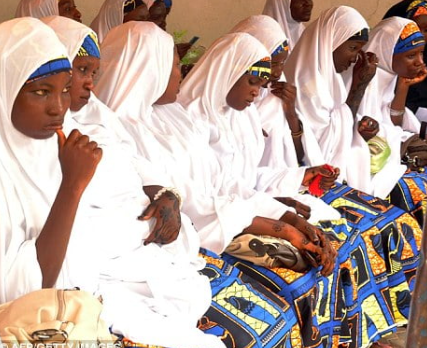BARRING last minute hitches, if WEEKLY TRUST of Saturday, April 7 is to be believed, the city of Kano, will soon make history. It will give 1000 widows away in a mass marriage, the type of which Nigeria has probably never witnessed. The small town of Shao, close to Ilorin, organises an annual mass marriage ceremony for its daughters. They do not pass 50 girls at a time, and as a reporter, I spent a whole weekend in Shao in the early 1990s, recording the ceremony for the BBC. The upcoming Kano event is of a different scale; 1000 widows have, expectedly, “set Kano agog as a jostle has begun to win the hands of the damsels in marriage”, according to the WEEKLY TRUST report. The event is being overseen by the Kano Hisbah Board (the Shariah enforcer), and these arranged marriages have attracted attention from far and near, with the revered Emir of Kano, excepted to stand in for the grooms; while millions of naira will be spent as dowries. Spare a thought for the 400 men who have so far gone for screening, including an 85-year old man who said “all he wants, he said, was to get a companion, someone to support him and live with him in case he needs help, especially considering his age. He said he wouldn’t want to die a single man”.
In 1994, I did a package for the BBC’s NETWORK AFRICA on the divorce rate in Kano, which is the highest, certainly in Northern Nigeria. A revered Northern traditional ruler actually banned his daughters from marrying men from Kano! He argued that they divorce their women at the earliest opportunity. In truth, the family structure is on the verge of collapse in Kano, and no wonder, one out of every 14 children in Kano today, is a street kid.
The economic life underlining is dire, but the sociology of family collapse has not been sufficiently studied in Kano or most of the North. Kano is the benchmark city of Northern Nigeria, expressing on the grand scale, the depth of the crises situation in the Region. So a mass marriage of 1000 widows looks like a good thing, but it merely scratches the surface of a deep-seated problem.
In January 2009, the Association of Kano Widows had even threatened to go on street demonstrations; it is that serious! Kano is unique in so many ways, that is why they say in Hausa, “komai da aka kawo, anfi ka a Kano”!


